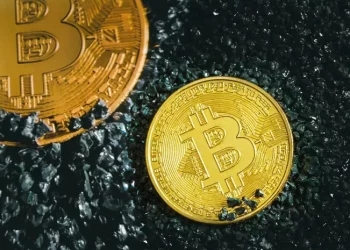Golden Finance reports that according to Cointelegraph, Ripple, a well-known enterprise in the blockchain and cryptocurrency field, has recently taken an important step in promoting blockchain education in the Asia-Pacific region. It was announced that an additional $5 million would be invested in six countries through its “University Blockchain Research Initiative” (UBRI), aiming to further expand the coverage of blockchain education and improve the quality of education.
Since its launch, Ripple’s “University Blockchain Research Program” has had a wide impact worldwide. Many years ago, Ripple committed to donating 50 million US dollars to 17 universities worldwide to support academic research, technological development and innovation in the fields of blockchain and cryptocurrencies. This plan not only provides financial support to various universities, but also contributes professional knowledge and technical resources, helping universities make significant progress in blockchain research, curriculum design and other aspects. For instance, Princeton University studies the global policy impact of cryptocurrencies and blockchain through this program. The University of Pennsylvania offers support to MBA-MS candidates engaged in research in the blockchain or cryptocurrency industry. Through this program, the Computer Science and Artificial Intelligence Laboratory at the Massachusetts Institute of Technology has joined forces with multiple companies in the financial services industry and numerous researchers to delve deeply into issues related to blockchain, cryptocurrencies, and more.
This additional investment in the Asia-Pacific region is an important decision made by Ripple based on the potential for blockchain development in this area. In recent years, the Asia-Pacific region has been highly active in the application and innovation of blockchain technology. Many countries and regions have been actively exploring the application scenarios of blockchain in multiple fields such as finance, supply chain, and education. Take Singapore as an example. The School of Computing at the National University of Singapore (NUS) began collaborating with Ripple as early as 2019. Its Fintech laboratory received a $1 million grant from Ripple’s “University Blockchain Research Program”, which supported the laboratory’s operation for the next two years. It further promoted the innovative cooperation between Ripple and NUS in the field of fintech, including holding various seminars, podcast series and other activities, attracting many students and business leaders to participate, and facilitating the exchange of knowledge and the collision of innovative ideas.
In Japan, Ripple has previously established partnerships with Kyoto University and the University of Tokyo as part of the “University Blockchain Research Program”. The Department of Economics at the University of Tokyo held a public symposium on blockchain and settlement and awarded scholarships to students involved in blockchain research. Graduate students from Kyoto University have conducted research on the application of blockchain in areas such as remittances for migrant workers, digital identity management for refugees, and supply chain management. This additional investment is expected to deepen cooperation with Japanese universities and other universities in the Asia-Pacific region, and expand research fields and educational projects.
Eric van Miltenburg, Senior Vice President of Global Operations of Ripple, said: The Asia-Pacific region has demonstrated great potential in the application and innovation of blockchain technology. We hope to increase investment, closely cooperate with local universities, cultivate more professional talents, promote the wide application and development of blockchain technology in various industries, and contribute to building a more innovative and efficient digital economy ecosystem. With this new fund, Ripple will join hands with universities in six countries in the Asia-Pacific region to jointly carry out blockchain course development, research project funding, and student scholarship establishment, among other tasks. It is expected that more students will have the opportunity to be exposed to cutting-edge blockchain knowledge, and university researchers will also be able to obtain more resources to deeply explore the application boundaries of blockchain technology and solve the key problems faced by the industry.
For universities in the Asia-Pacific region, the injection of funds from Ripple will bring many opportunities. On the one hand, it helps colleges and universities improve the quality of blockchain-related courses, attract more outstanding teachers, provide students with a richer and more practical learning experience, and cultivate professional talents who can adapt to the future development needs of the digital economy. On the other hand, university research teams can use this fund to carry out more in-depth research projects, strengthen connections and cooperation with the industry, promote the transformation of blockchain technology from theoretical research to practical application, and create more value for local enterprises and society.
Against the backdrop of increasingly fierce global competition in blockchain technology, Ripple’s continuous investment in blockchain education in the Asia-Pacific region will not only help the region cultivate more professional talents in the blockchain field, enhance the overall technical level and innovation ability, but also is expected to increase Ripple’s influence in the Asia-Pacific market. Promote the wide application of its blockchain technology and solutions in the region and facilitate the prosperous development of the blockchain industry ecosystem. With the gradual investment of funds and the launch of cooperative projects, the market is closely watching Ripple’s subsequent actions and actual achievements in the blockchain education field in the Asia-Pacific region.
Related Topics:
- Strategy spent a whopping 110 million US dollars to purchase 1,045 Bitcoins last week, and its yield in 2025 is expected to be impressive
- Ethereum community members have proposed a privacy roadmap that complies with the EU’s GDPR
- Casa Co-creation: It is not recommended to rely on artificial intelligence to explain the technical details of Bitcoin















